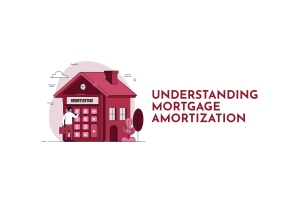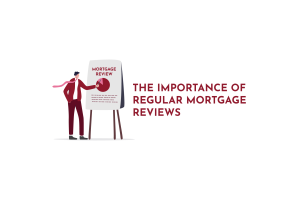Most people in Canada are familiar with the refrain…”The Canadian Banking System is one of the best in the world.” After the sub-prime lending crisis hit the United States in 2008 Canadians were inundated with reports of how that could never happen here because our banking system was designed differently, more regulated, and simply not susceptible to getting itself into trouble the same way that the banking system in the U.S. did.
With this type of media coverage, you would think that we owe these big banks a debt of gratitude for protecting us from the big, bad problems that the rest of the world faces.
Another interesting fact about Canada’s big five banks is that their profit margins regularly exceed 30%. The big five banks (RBC, BMO, Scotiabank, CIBC, and TD Bank) control about 90% of the banking market in Canada, allowing them to pull in billions of dollars in profit while doing very little to help Canadian consumers who have faced an ever-increasing cost of living.
Have you ever taken the time to think about how well you know the Canadian Banking system, particularly how they market products to you, the consumer? Are banks trying to help you or to maximize profits?
In This Article
- How Does This Sound to You?
- How Much Do You Know about the Business of Banking?
- Can it Happen to You?
- But the Bank is Where I’ve Always Gone for Help
- Banks Are Not Your Friends!
How Does This Sound to You?
When we talk to people as financial advisors we like to ask them a simple question. What do you think your largest single asset is?
We get all kinds of answers. Some of the more common ideas are that their largest asset is their home, or maybe an investment account that they have built up over the years. What they don’t think of is that in reality, the largest single asset that anyone has is their income. The amount of income that you will earn in your life is far and away the largest asset that you have throughout your life.
Think about this: regardless of the frequency with which it happens, the vast majority of Canadians take their largest asset and have it deposited directly into their bank accounts regularly. Did you know that the bank can then turn around and use the deposits you make as a tool to allow them to lend out money to consumers? In fact, for every dollar you deposit, the banks can lend out ten, virtually ‘creating money out of thin air’.
Don’t get me wrong, the availability of credit is a key cog in our overall economy. If businesses and individuals could not borrow money the economy would grind to a halt very quickly. But how does this make you feel? When was the last time you compared what you collect in interest from your bank to what you pay in interest when you have borrowed money from them? The amount that you receive in interest payments on deposits you have made will be negligible (often not even enough to offset the service fees that the bank charges you) while the debt products that you have will be charging you a significantly higher interest rate.
This seems fair, doesn’t it?
The only reason the banks can lend out money is because people make deposits with them, they then turn around and pay you virtually no interest while using your deposits as a mechanism to create and sell debt to Canadians, earning the bank extraordinary profits. If I offered to hold your money for you and then once a year reported to you how much money I was making off the back of your deposits, how long would you let me do that? Somehow we have been convinced that this is a wonderful system and that we are lucky to have access to it. I prefer to ask a few more questions before jumping to that conclusion.

How Much Do You Know about the Business of Banking?
Think of the way that your bank views you and your accounts. When you deposit your money in your bank account, the bank views that as a liability. This is because they are required to return the funds to you when you show up to make a withdrawal.
Do you know what isn’t a liability for the bank? Credit products. The marketing of credit products to Canadians is one of the pillars of how Canadian Banks make money (Banking fees are the other, don’t get me started on these, we will be here all day). The way that banks push sales above all else isn’t something that I am creating out of the ether. These practices are documented directly by employees of the banks.
Watch the video from CBC’s Marketplace.
Bank employees have sales targets and they feel pressured into pushing clients into buying products and setting up accounts that people don’t need because their job security depends on it. At one point in that video (around the 11-minute mark) you see that a scenario is set where an undercover reporter goes and talks to advisors telling them that they inherited $50,000 and that they want investment advice but they also have some credit card debt. All of the bank employees advise her to not pay off credit card debt in full when the client has the cash to do so. One even goes so far as to suggest that the best way to pay off the credit card debt wouldn’t be to use the cash that the client has but instead to take out a line of credit and then use that to pay off the credit card. Then take the whole $50,000 and invest it. It is breathtaking how bad this advice is.
If someone ever suggests that you don’t pay off a debt that is charging you 19.99% interest RUN, don’t walk out of that meeting. That is an advisor who is trying to sell you something. Bank employees stunningly admit that as an advisor they don’t get paid if you pay off a debt. They have to sell you products. The bank is not in the business of helping you. It is in the business of sales.
Can it Happen to You?
I would suggest that it can happen to anyone. I had a client for many years who experienced the loss of their spouse. As a couple they had always maintained small RRSP accounts at the bank because they ‘loved the teller’ who looked after them there.
As a bit of industry insider info, when someone’s spouse passes away the proper approach to what has happened regarding any individual RRSP accounts is that you take the balance of the deceased spouse’s RRSP and transfer it into the surviving spouse’s RRSP. This is permitted on a tax-deferred basis between spouses. The result should be the surviving spouse with one RRSP account that now holds the balance of all of the funds. In this particular situation what happened is that at the bank branch, there was a new RRSP account opened to receive the funds from the deceased spouse’s RRSP. Now the client has multiple accounts with the same underlying investments. Why? I would assume that opening a new account helped hit a target for the day that simply depositing the funds into the existing RRSP would not help hit. The kicker for me was that the bank in question had a nice little surprise for its clients. When you closed an RRSP account they charged you a fee of $135. So now, whenever this person decides to close out their RRSP portfolio they are on the hook for an additional account closing fee. This was all done at an institution where this couple always felt like they had been looked after well.
The downside is that in most cases people don’t understand what is happening when they go to the bank. Think about the last time that you spoke to a bank employee when they didn’t try and sell you something. They are put to you as ‘offers’ that you ‘don’t need to qualify for’ so you don’t feel like you’re being sold things. You feel like they are doing you a favour and if you don’t take advantage of the offer you’ll be missing out. Don’t be fooled. These ‘offers’ are purely to sell you a product and to hit sales targets, they are not to help you make better financial decisions.
But the Bank is Where I’ve Always Gone for Help
I pose this question. Why? Why do we as Canadians feel like we need to go to the bank for help with managing our money? Remember, anything that you deposit is a liability for the bank, the way they make money is to get you signed up for credit products. If you have trouble with managing debt and go to your bank the solution that you will often hear is that they can get you into a different credit product to help pay off the first one.
How is this helping? Offering someone more of what got them into trouble in the first place is never the solution! Think of this as a parallel and see if it makes sense to you. If you are a smoker and you decide that you want to quit, would you go to the tobacco company for suggestions on how to do this? Do you think that the company that is making all of that money off of you with your current behaviour wants anything to do with helping you change your habits? I would suggest that the only thing that they want to do is make things worse for you. Having problems with too much debt and being offered more debt by the bank doesn’t help you. It makes things worse. You go to someone for advice and leave with a bigger problem than you arrived with because as one employee points out in the video, the bank and its employees don’t get paid to help you pay off debt, they get paid to sell you things.
Remember, when you see an employee at the bank they are constantly under scrutiny and have their work performance monitored. The success or failure of their career revolves around successfully toeing the company line when it comes to sales targets. They are required to try and sell you credit and investment products when you go in to see them, and can potentially be reprimanded if they don’t. The crazy part is that they are not rewarded for making recommendations that are sound financial advice. There is no reward for a bank employee that advises you to pay off a loan, they need you to have more credit and investment accounts to confuse you. You don’t get reliable, independent financial advice from an employee of a huge corporation whose job is on the line if they don’t tell you about the credit card offer that popped up on their computer screen.
Banks Are Not Your Friends!
Hopefully, if you’ve read this far I can get you to remember one key thing. First and foremost, Canada’s Big 5 banks are large, publicly traded corporations. You need to understand that the purpose of banks, like any large corporation, is profits and shareholder values. Simply put, big banks are not in the business of helping Canadian Consumers, they are in the business of making money. The way that they make money is by having you pay them interest.
Albert Einstein is quoted as saying ‘Compound interest is the eighth wonder of the world. He who understands it earns it….He who doesn’t….Pays it.” Canada’s big banks have this figured out, make sure that you do as well. Talk to independent financial advisors and mortgage brokers like the team at Strata Wealth & Risk Management and Strata Mortgages. These professionals are a resource that is required to have your best interest at the core of any recommendations they make. They do not have a bank manager behind them reminding them that their jobs are at stake if they don’t sell you something you may, or may not, need.








